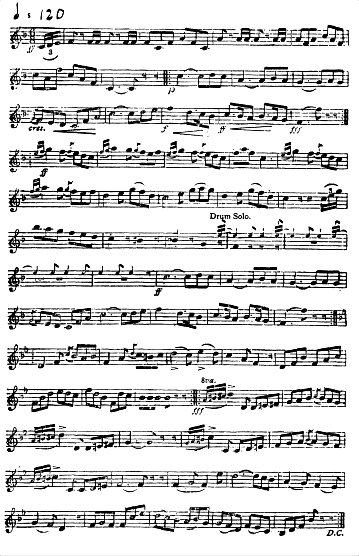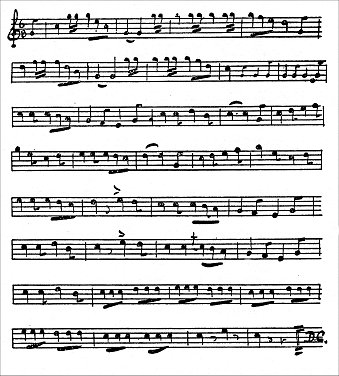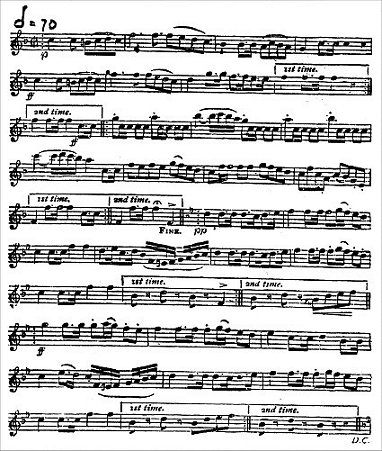Regimental Music
Regimental Quick March “Royal Windsor” This March was presented to the 29th Regiment in 1791 by H.R.H. Princess Augusta, daughter of King George III. The Regiment was then doing Guard duty at Windsor. The march is understood to have been composed by the Princess (although a Russian origin has also been suggested). The march has been played ever since by the 1st Battalion, and since 1881 has been played by all Battalions of the Regiment. In the Peninsular and Sikh Wars this march was used by the Band to play the Regiment into action. A similar instance in 1918 was when Major Davenport had the Cornish Pioneers band play this march while the Worcesters went into action at Hombleux. “The Poacher” This famous old tune was used as a quick march by the 36th Regiment, which later became the 2nd Battalion, before 1881. The date and reason of its adoption are still unknown. The same tune, with some slight variations, is used by several other regiments, notably the 10th (Lincolnshire) and the 58th (the old Rutlandshire, later the 2nd Northamptonshire). In tribute both to the memory of the old 36th, and also to our great friendship with “Our Cousins” the Lincolnshire Regiment, this tune is nowadays played once through before “ Royal Windsor.”
Regimental Slow March “Duchess of Kent” This March is believed to have been composed by the Duchess of Kent, mother of Queen Victoria, and to have been presented to the 29th Regiment. It is understood that when the Regiment was reviewed by Queen Victoria at Windsor in 1877 the original manuscript was submitted to Her Majesty at her request. Unfortunately it was not afterwards returned to the Regiment and has not since been traced. The slow march is also used by some other regiments, including the Royal Artillery.
|
Royal Windsor |
The Poacher |
Duchess of Kent |
Assemby March
“Hearts of Oak”
Played before parades by the drums, as the companies march on to the Battalion parade ground.
The tradition is that this tune, then a popular song, was played by the ship’s band of H.M.S. Brunswick on board which a detachment of the 29th was then serving, as she went into action on “The Glorious First of June.” After that battle the tune was used by the 29th as an assembly call for all duties. “Before all parades were formed—guards paraded (or) picquets marched (off)—a drum and fife beat off ‘Hearts of Oak’.
The words as here printed, which differ slightly from the usually accepted version, were given to the compiler by Colonel R. J. Watson (29th Regt. 1860—1884) as being the wording always used by the Battalion.
"HEARTS OF OAK." (original words of the song) Come cheer up, my lads, 'tis to glory we steer Hearts of oak are our Ships,
|
Hearts of Oak |
Notes:
(*) The year 1759 witnessed the great naval victory of Admiral Hawke at Quiberon Bay, the astounding victory of the British army in Germany at Minden, and Wolfe's capture of Quebec.
(#) landing-craft.
(§) A contemporary enemy newspaper.
The song is from the "Harlequin's Invasion," (†) Sung by Champness in 1739.
Words by David Garrick. Music by Dr. Boyce.
(†) Presumably a "revue" of the period.




